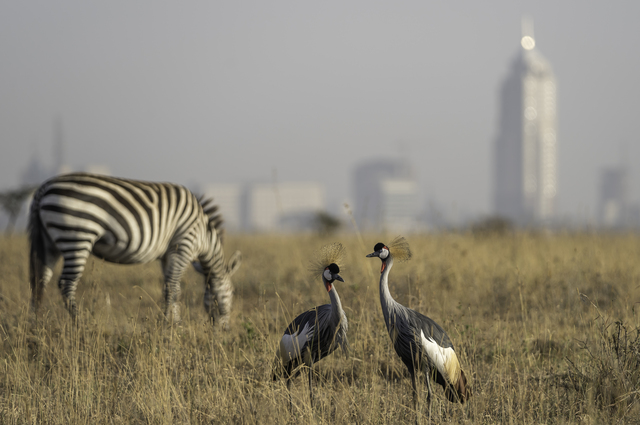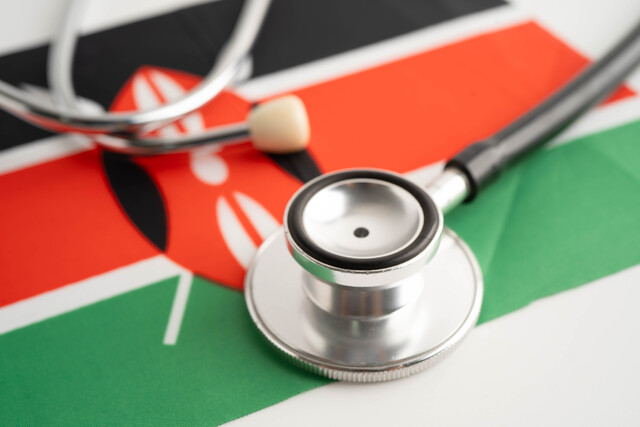Kenya probably isn’t the first country that comes to mind when you think about medical travel. But maybe it should be. Over the last decade, this East African country has been quietly building something impressive — a medical system that’s modern, affordable, and increasingly international. And all of it sits beneath the wide African sky.
Most people picture Kenya through the lens of wildlife and open savannas. But there’s another story unfolding in Nairobi and Mombasa. It’s about specialists with global training, private clinics with real follow-through, and travelers who leave feeling — and looking — better than they have in years.
Why Kenya Works for Medical Travel
You don’t need a luxury budget to access good care here. Kenya's private hospitals and clinics understand that value matters. They’ve priced their services for people who want quality, but who also keep an eye on their savings. And you’re not compromising. Most facilities in Kenya are well-equipped, with diagnostic tools, clean surgical units, and tight infection controls. You’ll also find more face time with your doctor than you’re probably used to.
English is widely spoken. So are Swahili and a dozen local languages. But you won’t struggle to communicate, especially in the health sector. The staff usually trained abroad, many in India, the UK, or South Africa. They’ve brought that knowledge back and fused it with a local understanding of how to care.
Aesthetic Procedures in Kenya: What’s on Offer?
Kenya may surprise you here. Cosmetic surgery in Nairobi has taken off. Clinics now offer treatments that rival what you’d find in Europe, but with shorter wait times and a calmer pace.
Popular procedures include:
- Tummy tucks and body contouring
- Breast lifts and augmentation
- Facelifts and neck tightening
- Hair transplants for both men and women
- Advanced skincare including chemical peels and laser resurfacing
- Dental makeovers: crowns, implants, veneers
These treatments are led by specialists who see international patients regularly. The clinics market themselves quietly, but they deliver results. You won’t find celebrity-style hype, but you will find surgeons who care about outcomes and who listen closely during consultation.
Kenyan Hospitals Are Stepping Up
Aga Khan University Hospital in Nairobi stands out. So does Nairobi Hospital, which has built a strong reputation across East Africa. These facilities meet international benchmarks for safety and professionalism. They also run smoothly. If you need lab work, scans, or referrals, the system responds quickly.
Kenya doesn’t chase recognition. But the care here has caught the attention of expats, regional elites, and now middle-income travelers from Europe and the Gulf. They’re coming for orthopedic surgery, fertility treatment, cardiac care, and even oncology.
Kenya’s Edge: Recovery with a Real View
No other country offers this kind of recovery experience. One day you’re leaving your clinic after a procedure. The next, you’re sitting in a lodge watching elephants cross a riverbank. That contrast works. Nature here doesn’t just entertain — it calms the nervous system. It helps you heal.
You don’t need to hike or explore if you’re not up to it. Kenya offers everything from beachside recovery in Diani to quiet garden villas near Nairobi’s outskirts. Some clinics even help coordinate stays at wellness resorts or private bungalows with on-call nurses and custom meals.

Affordability Without a Catch
Let’s talk numbers. On average, medical tourists save up to 60% compared to equivalent care in Western countries. A facelift that costs thousands in the UK can be done here for a fraction of the price — with no cut corners. Dental procedures are especially affordable, making Kenya a growing hotspot for full mouth rehabilitation and cosmetic work.
Add to that the flight savings from Europe or the Middle East, and it starts to make sense. Kenya doesn’t overcharge because it doesn’t need to. Living costs here are lower. The health infrastructure has grown rapidly, but it hasn’t priced itself out of reach.
What to Know Before You Travel
If you’re planning to come for a procedure, timing matters. The best months fall between July and October, and again from January to March. These are Kenya’s dry seasons. The weather stays steady, which helps with comfort and recovery.
Before you travel, you’ll want to confirm your consultation schedule and recovery plan with the clinic directly. Many offer virtual consultations ahead of time. You can share photos, ask questions, and get a detailed quote before you book anything.
Expect to spend at least a week in Kenya, longer if your treatment needs follow-up. That’s not a downside. It gives you time to unwind. To see the country if you feel up to it. Or just to relax and let your body adjust in a peaceful, warm place.
Trust Is Built One Patient at a Time
Kenya isn’t trying to compete with everyone. It’s just doing what it does best — taking care of people. Patients don’t feel like transactions here. Doctors remember your name. Nurses check in without being asked. Even the drivers who pick you up from the airport want you to feel safe and seen.
That culture of attention runs deep. And it’s one of the reasons patients go home and tell friends to come too. Kenya earns its referrals by showing up, not showing off.
Should You Consider Kenya?
If you’re in your 40s, 50s, or 60s and want to finally fix something you’ve been putting off — Kenya could be the right choice. You’re not just getting a procedure. You’re getting time to heal in a country that knows how to make people feel at ease.
I’m Jana, and I’ve worked in this space long enough to know what works and what doesn’t. Kenya works. Not just for health and beauty, but for peace of mind. You don’t need to rush. You don’t need to overspend. And you certainly don’t need to settle.
